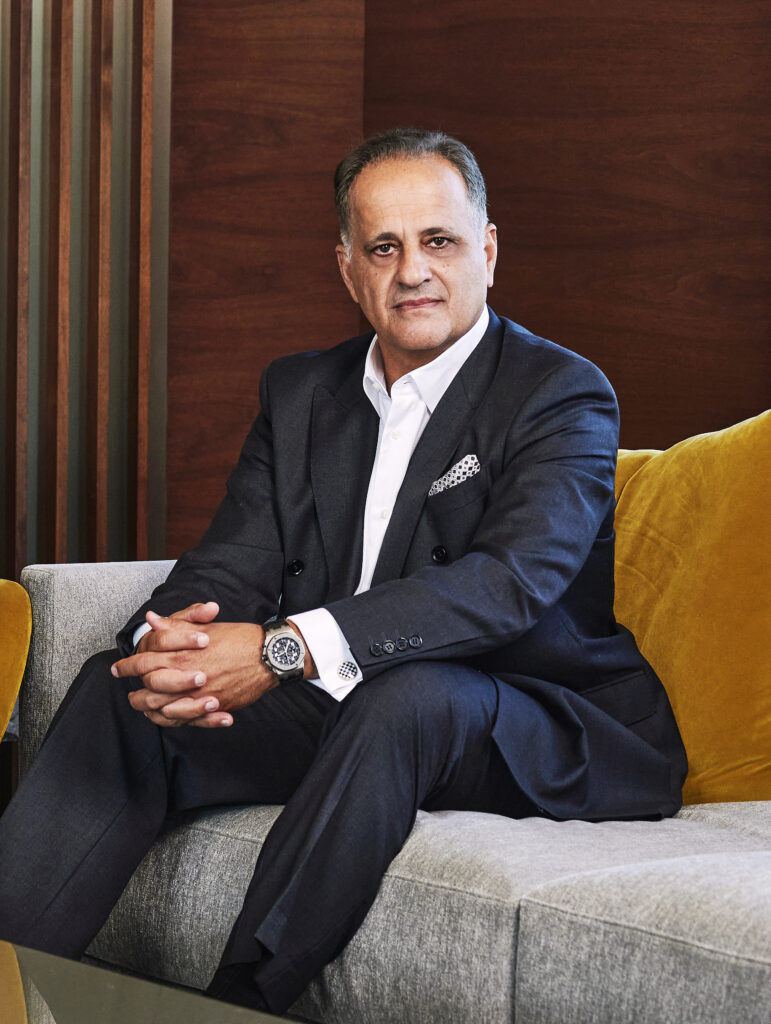Artificial intelligence continues to drive innovation across industries, transforming everything from enterprise operations to consumer experiences. As we move toward 2025, the AI landscape is expected to undergo significant shifts, with new challenges and opportunities emerging in areas such as startup valuations, ethical AI, and energy consumption. Understanding these trends is critical for investors and entrepreneurs navigating the rapidly evolving tech ecosystem. To gain deeper insights into these pivotal developments, we spoke with Ivan Nikkhoo, Managing Partner of Navigate Ventures. With years of experience supporting B2B Enterprise SaaS startups at the early and mid-growth stages, Nikkhoo provides a unique perspective on what lies ahead for AI and SaaS markets. In the following interview, he shares his expert views on the industry’s trends in 2025 and beyond.
What will drive a resurgence in AI startup valuations in 2025, and how will investment priorities shift?
After a two-year surge in AI investments, 2024 saw a 10% drop in startups and a rise in down rounds to 11.4%. While these trends have hit the lower tiers of the market hard, AI funding still made up 31% of global venture funding in Q3—its second-highest share ever—fuelled by the generative AI boom. This market bifurcation has created a “haves and have-nots” scenario, with struggling startups becoming M&A targets and top VCs doubling down on future leaders.
Many underperformers are still navigating extension and bridge rounds, but by 2025, only a smaller cohort of high-performing startups will earn higher valuations driven by measurable growth and performance. Additionally, major industry players have recently raised substantial superfunds that must be deployed in 2025. These funds will target companies at scale, further boosting valuations for leading AI startups. Like in SaaS investing, we’ll see increased investments in fewer, higher-quality companies, emphasising their potential for meaningful exits and new VC fundraises.
How will startups tackle ethical and security concerns in AI, and what opportunities might this create for investors?
AI platforms today focus heavily on the “4 As” of growth: Automated Tasks, Accelerated Productivity, Accelerated Creativity and Augmented Human Capabilities. However, as AI becomes deeply embedded in business and personal life, startups that address ethical use, security, and governance will emerge as key players. AI-enabled SaaS platforms focused on these areas are already gaining interest. With stricter AI-related regulations expected, this sector will see heightened VC activity in 2025. As with previous tech cycles, these solutions will likely begin as standalone platforms before integrating into broader applications over time. Startups solving these pressing issues will attract significant valuations, creating unique opportunities for investors looking to back solutions that address the ethical challenges of AI adoption.

What innovations are needed to support enterprise AI adoption at scale?”
Enterprise AI adoption is currently limited by the scale of data and compute requirements. To overcome these barriers, new processors with faster performance, better efficiency and lower heat dissipation will be critical in 2025. While established tech giants are leading efforts in chip innovation, niche players specialising in unique or industry-specific solutions are also likely to emerge. With a tech-friendly administration in the US, chip manufacturing will be a key area of focus, further accelerating innovation and adoption at the enterprise level.
How can companies and governments address AI’s growing energy demands, and what role will alternative energy play?
AI’s energy consumption is becoming a pressing issue. To sustain their AI ambitions, Big Tech companies are increasingly exploring alternative energy sources, with clean nuclear power emerging as the most viable solution. The technology for clean nuclear power already exists, but questions remain about how to scale and operate it effectively. This shift will require substantial capital investments and government approval, with 2025 expected to be a foundational year for laying the groundwork. While these efforts will take time to mature, they signal a pivotal move toward sustainable energy solutions for AI’s future growth.
What trends do you foresee in VC investments, especially in emerging tech and AI markets?
In 2025, we’ll see a continuation of the trend toward “fewer but better” investments, with VCs focusing their capital on high-performing startups that demonstrate strong growth and scalability. Emerging technologies like AI integrity, security, and governance will attract significant funding, as they align with growing regulatory and societal concerns. The convergence of AI with advancements in chip technology and clean energy will create new opportunities in hardware, infrastructure and sustainability sectors. VCs will increasingly prioritise startups addressing these systemic challenges, looking for companies with the potential to drive long-term transformation in their industries.



